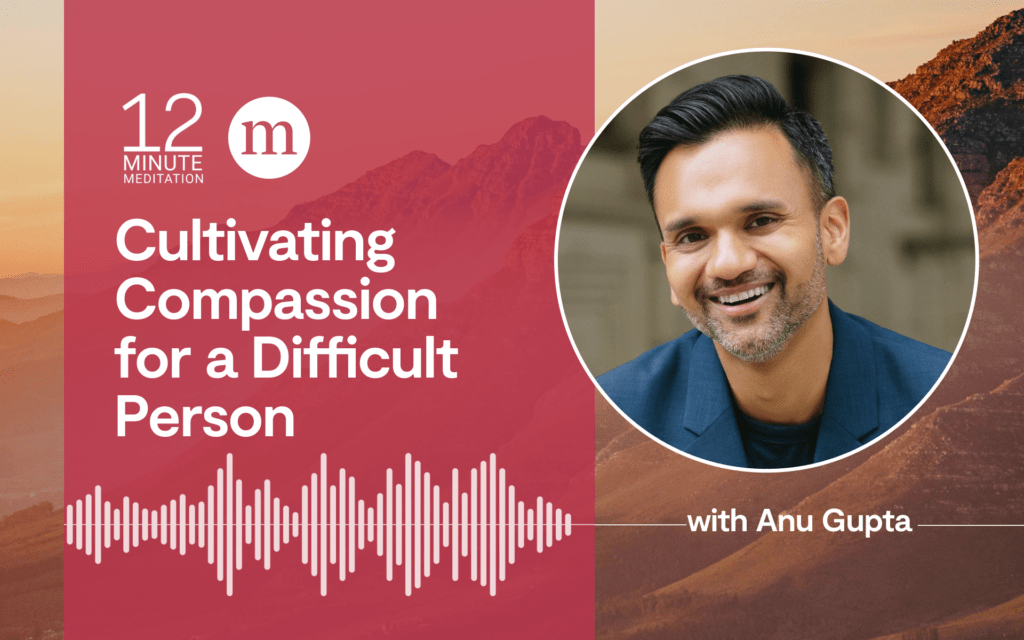No matter whether we seek to get along with everyone, or have been known to cherish a grudge or two, we all know of a person whom we disagree with or who challenges us in some way. When you bring this person to mind, what do you notice? You may feel physical tension, anxiety, or other unpleasant sensations in the body.
In this meditation, Anu Gupta guides us in simple phrases of compassion and loving-kindness that allow us to remember: Just like me, this person is also human. Just like me, they have their own joys, desires, and struggles. Offering kind wishes to someone difficult is a powerful way to expand our circle of compassion. We don’t have to like them, but we can cultivate compassion for them by softening our resistance and acknowledging their humanity.
A Guided Meditation for Sending Compassion to a Difficult Person
Begin by settling into a comfortable seated posture, either on a cushion or a chair. Rest your feet on the ground below you. Place your hands on your knees or in your lap. Let your shoulders relax, your spine straight and relaxed, keep your chin parallel to the ground below you, and bring your eyes to a gentle close.
Bring your attention to your breath. Notice your inhales and your exhales. The breath is oftentimes a reflection of the mind. It’s just bringing awareness to the breath to settle the mind.
Notice if you’re holding any tension in any part of the body. Bring that to awareness and gently ask that body part to relax. Whether it’s your tongue, your shoulders, or your feet.
Relax. Relax. Relax.
As you breathe in and you breathe out, bring to mind a person you’ve had some difficulty with. It doesn’t have to be the worst person you know, or someone who’s caused you a lot of harm, but someone you dislike. Someone who’s challenging. Someone that brings up some sort of resistance in your body. It could be a public figure. It could be someone you know.
Let yourself feel what it’s like to be in that person’s presence. Bring to attention any tension, dislike, or disgust that may arise because you’ve brought this person’s image in your mind. Just notice it, noticing these unpleasant sensations. But also remember that just like you, this person is also a human. Just like you, this person was also a baby at some point. Just like you, this person is also subject to sickness, to old age and to death.
Now, imagine this person as a baby. And now offer this difficult person some words of kindness.
Just like me, you’re human. May you be safe. May you be peaceful. May you be healthy. May you live with ease. May you be safe. May you be peaceful. May you be healthy. May you live with ease. May you be safe. May you be peaceful. May you be healthy. May you live with ease.
Repeat these phrases of compassion for this difficult person over and over again. Notice the discomfort if it arises. Notice the resistance. And then say to the resistance, J
ust like me, you’re human. Just like me, you’re human. May you be safe. May you be peaceful. May you be healthy. May you live with ease. Keep repeating these phrases for as long as you like.
After your next exhale, bring your chin to your chest, stretching the back of your neck. Thank you for your practice today.


 Troov
Troov 
































